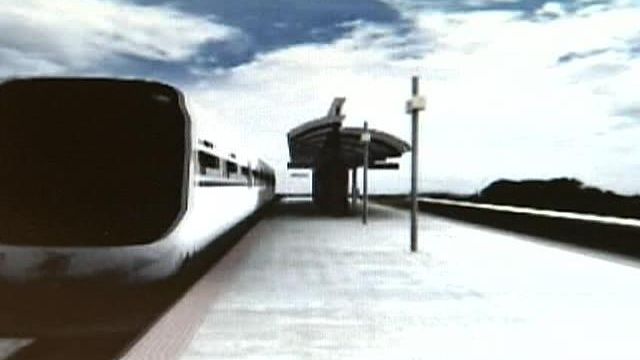Local News
New Panel Will Develop Vision For Triangle Transit
Planning for future rail projects in the Triangle will shift from the Triangle Transit Authority to a new group that wants to tap into public opinion. Now, some lawmakers want to derail the TTA altogether.
Posted — UpdatedRALEIGH, N.C. — Planning for future rail projects in the Triangle will shift from the Triangle Transit Authority to a new group that wants to tap into public opinion. Now, some lawmakers want to derail the TTA altogether.
Fifteen years ago, the TTA began working on a plan to build a rail system. When the latest light rail solution failed to qualify for federal funding last summer, it sent the process back to the drawing board. Some lawmakers are not happy with the way the plan was put together or the TTA's role in the process.
"Clearly if you can't get the federal government to fund something, there's got to be something wrong with it, and that was the end of the TTA in my mind," said Tommy Craven, of the Raleigh City Council.
"It's appropriate to look back and see what you learned from that process. There's always Monday morning quarterbacks who are going to suggest how it could have been done better, but that's healthy," said David King, of the Triangle Transit Authority.
The TTA was created in 1989 by a collection of regional planning organizations and leaders to implement a long-term transportation plan. Now, the Capital Area Metropolitan Planning Organization --- made up of mayors and leaders from around the area --- will drive the engine in developing a vision for transit in the Triangle.
Creedmoor Mayor Darryl Moss said the new process has to work because of the area's population explosion. Others agree.
"If you think about your heart and your arteries getting clogged, we're not there now," said organization member Joe Bryan. "But if we don't plan for transportation, we're going to have gridlock. We're going to have a heart attack."
The group is now looking at all possible remedies.
"It's not about building another light rail immediately," Bryan said. "Transit involves rubber-tire transit. That means buses."
Other organization members said they'd also look seriously at what's being used in other metropolitan areas around the country. Moss said that the future solutions would cost billions of dollars.
When asked if the money situation is a hurdle that can be overcome, Bryan said, "Well, I'm clearly a road warrior."
Bryan said he and the other committee members are up to the challenge of finding the money to pay for a transit system.
"The momentum's still there," said committee member Ed Harrison. "The momentum hasn't ever stopped."
The group may appoint up to 30 new members next month and will have at least six months to form recommendations.
• Credits
Copyright 2024 by Capitol Broadcasting Company. All rights reserved. This material may not be published, broadcast, rewritten or redistributed.






